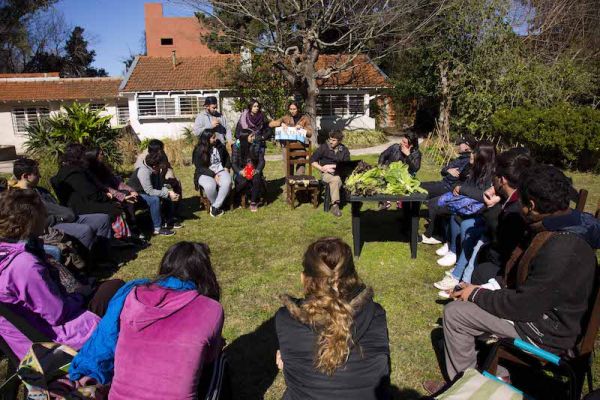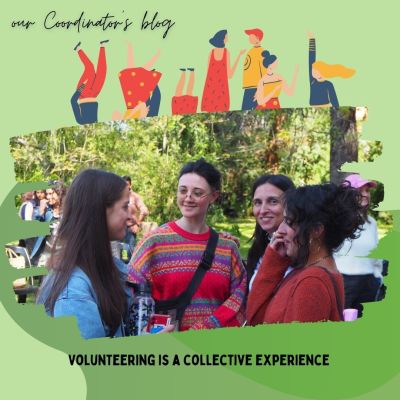During the first day of the 2019 gardening course of Pacheco Community, the new students spent their first day getting to know each other, walking through the garden while learning about the essentials of planting, and reflecting about a very important issue: the role that Latin American harvesters and growers play in feeding our society.
What our environmental project, Pacheco Community, intends to do is to educate young locals from the province of Buenos Aires about the importance of gardening and giving them this knowledge as a tool for being able to get employed and also to learn to connect with the land and respect our relationship with nature. But more importantly, what this project intends to do is to empower and promote in its students critical thinking of their social surroundings so they can become activists for change.
At the end of the first session of 2019’s gardening workshop, we sat down in a circle around the garden and read an article with the intention to reflect and discuss its content. This article talked about how the world’s food economy is dominated by the industries but sustained by millions of local harvesters, and how the problem lays in our ignorance on this fact.
If we all knew that the ones who really feed us and produce our food are local harvesters and not the industry (they own the land and then collect the food to later sell it for higher prices around the world) maybe we could do something to change how the food economy works since those who harvest and produce with their own hands are not rewarded for their labour and are lacking many resources.
This makes us think on what is the role of the state in helping the locals to do their not highly remunerated work? what we know is that the majority live in poverty conditions and don’t have good machinery to empower themselves and grow their own businesses, in the end it's the big international industry, in the hands of a few, the one that ends up with the money.
Moreover, this also leads us to reflect on the quality that we receive from buying our food that was initially harvested in healthy conditions to later be overproduced and be sold at expensive rates. We need to claim education on this subject from the State, the government needs to introduce us on how to become producers of our land since we start school at an early age, to make us aware that we can feed ourselves in a healthy way without having to pay big companies to give us toxic food that makes us sick and shorten our budget.
But to start becoming harvesters of our own food we first need to start talking about the unavailability of land, which in its big majority is private and belongs to the same powerful actors that rule the world.





